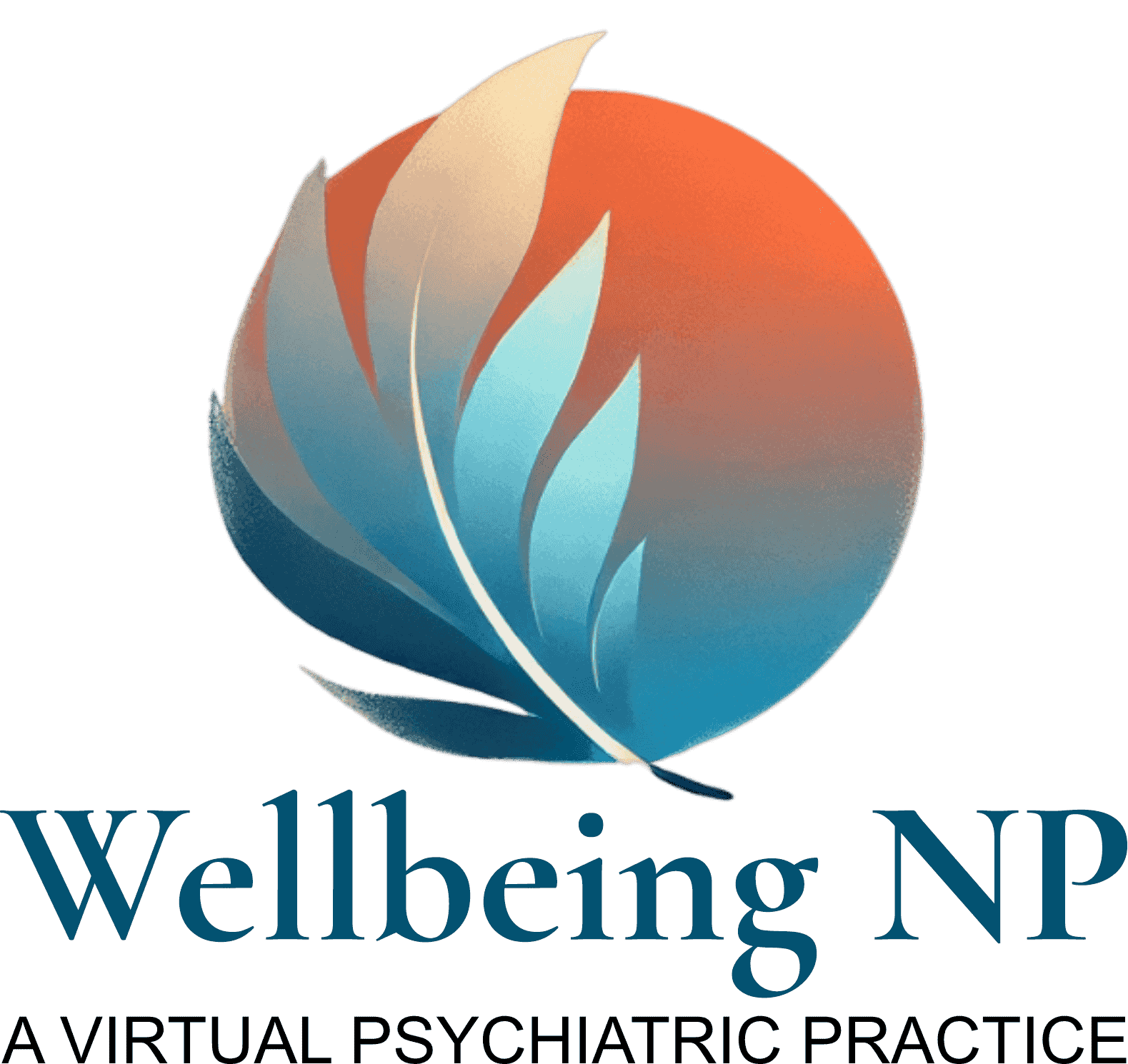
By Lindsay Fuson, FNP-C, PMHNP-BC | Wellbeing NP
For decades, stimulant medications like Adderall and Vyvanse have been considered the gold standard in treating Attention-Deficit/Hyperactivity Disorder (ADHD). And for good reason — research consistently shows that when properly prescribed, stimulants reduce core symptoms like inattention, impulsivity, and executive dysfunction in up to 70–80% of patients.
But in 2025, the conversation around ADHD medication is shifting, but not because of groundbreaking new science. It’s shifting because of supply chain disruptions, system-driven stigma, and policy-level fear. And as both a clinician and a woman with ADHD, I’ll be honest: it pisses me off.
The Clinical Gold Standard Backed by Data
Guidelines from the American Academy of Pediatrics and the American Psychiatric Association remain clear: stimulant medications are the most effective first-line treatment for ADHD. They outperform non-stimulants and therapy alone in reducing core symptoms, improving focus, and restoring day-to-day functioning. But what happens when what’s recommended isn’t what’s available?
Supply Chain + Schedule II = Barrier, Not Benefit
Over the past two years, stimulant shortages have left patients across the country without reliable access to medication. Pharmacies have turned people away, prescriptions have gone unfilled, and patients have been told to “try again next month.” Compounding the issue is the fact that stimulant medications are classified as Schedule II controlled substances, alongside opioids.
That means no automatic refills and new scripts are required each time; tight restrictions on telehealth prescribing; potential for DEA scrutiny and pharmacy audits; and in some cases, drug testing policies imposed by institutions or employers. Let’s be clear: routine drug screening for patients prescribed ADHD medication is not evidence-based and is not recommended by any national psychiatric guidelines. Yet some systems still enforce it — and that sends a loud, harmful message.
The New Messaging: Shame in the Exam Room
What we’re seeing in practice is that some providers are backing away from prescribing stimulants, not because the patient isn’t a good fit, but because they’re afraid of system-level backlash. People with legitimate ADHD are left feeling criminalized for seeking the standard of care, shamed by policies that assume the worst, and dismissed after already trying everything else just to cope. This isn’t just a care access issue. It’s medical gaslighting dressed up as policy.
As a clinician, it’s deeply frustrating. As a woman with ADHD who internalized years of shame before getting the right diagnosis and care, it’s infuriating.
Reframing Misuse Fears with Facts
Despite widespread stigma, studies show that appropriately prescribed stimulants reduce the risk of substance misuse among individuals with ADHD. ADHD itself is a risk factor for substance use and treatment helps. Diversion and misuse happen most often when patients face barriers to care, not when care is accessible and monitored. Creating hurdles doesn’t reduce misuse. Instead, it forces patients into corners where they lose access, control, and dignity.
The Psychological Toll of This Narrative
Here’s what happens when people are told their symptoms aren’t “real enough” or that their need for medication is “suspicious.” They shut down. They stop asking for help. They internalize the belief that their suffering is their fault. And that’s not just clinically unhelpful — it’s damaging. I’ve seen this again and again: bright, high-functioning adults, college students, and parents who’ve tried everything are told their need for support is something to be ashamed of. That is not care. That is harm.
What We’re Doing Differently at Wellbeing NP
At WellbeingNP, we’re psychiatric nurse practitioners, and we believe ADHD care should be evidence-based, shame-free, and highly personalized. Whether medication is a fit or not, we’re here to walk with you. We do not gatekeep your care.
1. We Don’t Shame You for Needing Meds
You’re not “drug seeking.” You’re seeking clarity, focus, and control over your life. We get that, and we support you without judgment.
2. We Offer Genomic Testing
Using Genomind testing, we can evaluate your medication metabolism, sensitivity, and neurotransmitter profiles to better understand what will (and won’t) work for you.
3. We Provide High-Quality Supplement Protocols
For those who don’t tolerate stimulants or prefer alternatives, we’ve developed targeted supplement protocols using high-quality, third-party tested ingredients to support attention, regulation, and brain health.
4. We Offer ADHD + Executive Function Coaching
Medications help, but structure sustains. Our coaching services support real-world success through tools, strategies, and accountability systems designed for ADHD brains.
What’s Next for ADHD Treatment?
The future of ADHD care includes:
- Personalized prescribing
- Lifestyle and sleep-based interventions
- Research into inflammation and gut-brain pathways
- Real partnerships between patients and providers
WellbeingNP is not here to overmedicate or underdeliver. We’re here to honor the nuance because you deserve more than a checkbox diagnosis or a “maybe next month” prescription.
If you’ve felt dismissed, discouraged, or like your ADHD made you a liability — I see you. And you are not the problem. Whether you’re ready to revisit medication, explore new tools, or just want a provider who listens, I’m here.
You don’t have to prove your symptoms to deserve care. Book your consult to learn your options.








